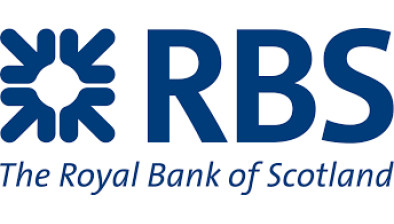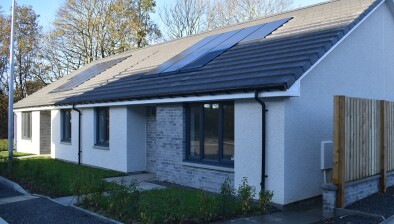RBS: Scottish economy sees further growth in April
The Scottish economy continued on its recovery path in April, according to the latest Royal Bank of Scotland PMI.

Malcolm Buchanan, chair, Scotland Board, RBS
The seasonally adjusted headline Royal Bank of Scotland Business Activity Index - a measure of combined manufacturing and service sector output - rose from 54.3 March to 55.4 in April to signal a back-to-back upturn, with the rate of growth the quickest for eight months. Central to the expansion was a renewed rise in new work, with the rate of increase the fastest for nearly three years and solid.
According to panellists, client demand had improved noticeably amid loser lockdown restrictions. Subsequently, capacity pressures built in April as backlogs of work rose for the first time in over two-and-a-half years. In response, firms took on additional staff for the first time since January 2020.
April data highlighted the first increase in new business at Scottish private sector firms for eight months. Panellists linked the rise to improved client demand, driven in part by the easing of lockdown measures. Moreover, the upturn in new work was the strongest since August 2018, with both manufacturers and services firms registering an increase.
Nonetheless, the rate of growth in Scotland lagged behind the UK average in April. Of the 12 monitored areas, only the North East of England saw a slower expansion of new business than Scotland.
Scottish companies remained optimistic with regards to output over the next year in April, with the Future Activity Index falling only slightly from March’s record high. Anecdotal evidence attributed confidence to improved sales, easing lockdown restrictions and hopes of strong growth alongside an economic recovery.
Goods producers recorded the strongest level of sentiment on record in April, although they were still less optimistic than services firms.
Amid reports of surging demand and hopes of sustained growth, Scottish companies increased their workforce numbers during April. This marked the first round of job creation since January 2020, before the COVID-19 pandemic. The rate of increase in employment was marginal overall, but slightly above the series long-run average.
Sectoral data highlighted a notable divergence, however, with new jobs concentrated in manufacturing. Service sector employment meanwhile continued to decrease, although the rate of reduction slowed on the month.
Adjusted for seasonal variation, the Outstanding Business Index posted above the neutral 50.0 mark during April. This signalled the first rise in backlogs of work at Scottish private sector firms for nearly three years, albeit one that was only mild. Respondents attributed backlogs to surging sales and the COVID-19 pandemic.
Capacity pressures were concentrated on the manufacturing sector, with outstanding business broadly stable at services firms.
April data highlighted a further steep increase in cost burdens facing Scottish firms, with the rate of inflation unchanged since March and the fastest since August 2018. Price hikes at suppliers, greater utility, wage and material costs, as well as Brexit, were the primary drivers of inflation according to panellists.
At the sector level, both manufacturers and services firms saw a marked rise in costs, although the rate of inflation was noticeably quicker for the former.
Average charges levied by Scottish private sector firms rose further in April. According to anecdotal evidence, firms were passing higher costs on to clients where possible. Moreover, the latest rise in charges was the fastest since February 2011 and sharp.
As was the case for input prices, goods producers recorded a much steeper increase in charges than services firms.
Malcolm Buchanan, chair, Scotland Board, RBS, said: “April data highlighted further gains for the Scottish private sector as it continues on its recovery path. Business activity rose for the second month in a row, with the latest upturn the strongest for eight months. Key to growth was a renewed rise in new work and one that was the strongest for nearly three years.
“Further positive news came from employment, with companies adding to staff numbers for the first time in over a year - a clear sign that firms are confident of a recovery. Indeed, the year-ahead outlook for activity remained historically elevated.
“Overall the data are very encouraging and suggest the private sector has turned a corner towards recovery. With lockdown measures set to ease further, we should see a sustained rebound in the months to come.”







